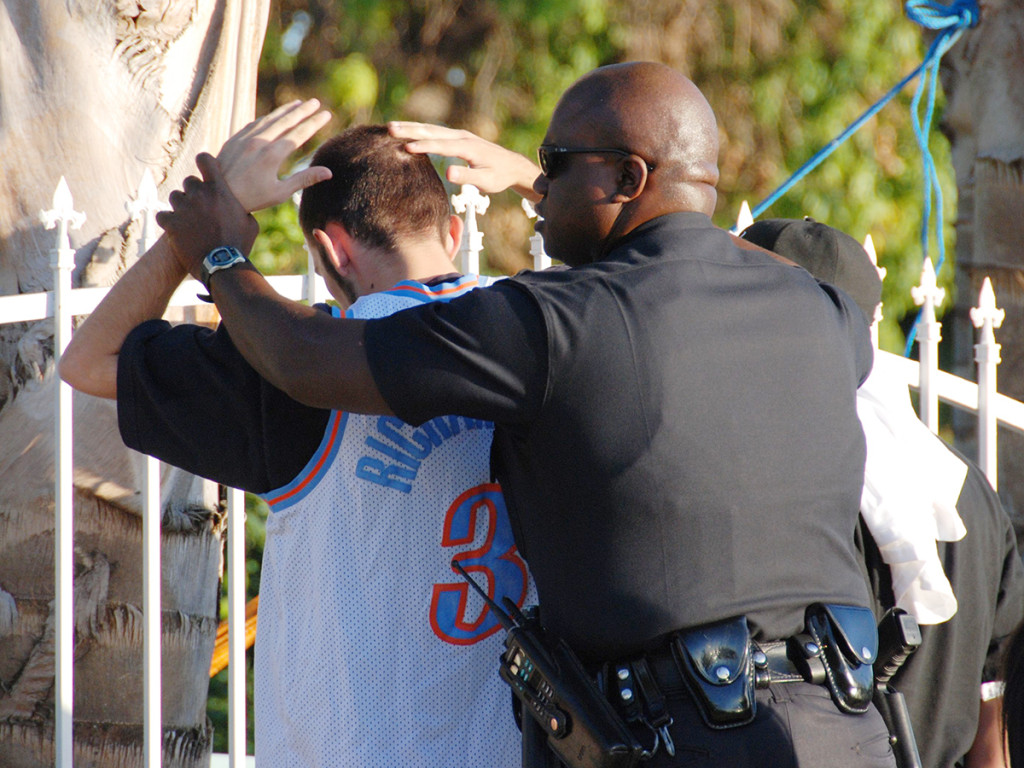
Last November, California voters chose to take a meaningful step fixing our broken prison system by voting in favor of Proposition 47, but now some within the police department are trying to undermine this effort before all the facts are out.
Now of course it’s important for the police to keep our streets safe by punishing those who violate the law, but in recent decades, our legal system has gone overboard. After adopting an incredibly harsh “three-strikes law,” state prisons became so overcrowded and unsanitary that the Supreme Court declared them unconstitutional and ordered the state to reduce the prison population.
In response, a decisive majority of California voters said yes to Prop 47. This initiative helped curb prison overcrowding by reducing the classification of most nonviolent drug and property crimes involving less than $950 from a felony to a misdemeanor. While this didn’t entirely fix California’s prison system, the immediate effects have been very positive. Keeping less people locked up will save the state an estimated $100 to $200 million in the 2016-2017 budget, money that can be spent on education and infrastructure.
Prior to the passage of Prop 47, overcrowding had already led certain counties to release some of their inmates early, even some who were guilty of violent offences including child abuse and domestic violence. Prop 47 only allows for the release of only nonviolent offenders, giving prisons the space needed to keep violent criminals under lock and key.
However, some law enforcement officials fear the progress that Prop 47 has made and blame it for a recent increase in low-level property theft. This particular claim is not supported by the facts. According to Stanford Justice Advocacy Project’s director, Michael Romano, “There is no evidence that there’s a correlation (between Prop 47 and rising crime) … those who’ve been released early under Proposition 47 are not responsible for the crimes being reported.” Spikes in crime can have numerous causes and Prop 47 shouldn’t be made the scapegoat.
To be fair, there may have been some bad apples among those released under Prop 47, but we need to consider the big picture: does the good outweigh the bad? Consider the fact that of the 3,068 inmates released by the California Department of Corrections and Rehabilitation since last November, only 14 have wound up back in the system, meaning only 0.005 percent of those released went on to commit more crimes.
Most of these nonviolent offenders are working to get their lives back together, and we as a state should be helping those who want to atone by making prison a less inhumane experience. If we condemn nonviolent offenders to an inhumane system, how can we hope to get a productive member of society out of the process?
What’s most upsetting about the opposition to Prop 47 is that police officials were opposed to this initiative from the start, and now are refusing to adapt to the reality of the law. The American Civil Liberties Union (ACLU) is calling them out on this, accusing some police officials of “falsely claiming that they are no longer able to arrest people for petty crime or that a misdemeanor is not a “real” penalty.” The police need to get their heads back in the game and start using the tools that are at their disposal, tools that now have sensible limits.
There’s an old saying that if all you have is a hammer, everything looks like a nail. For far too long the state of California has used time in prison as a hammer, even when the situation may not call for it. Only recently have voters awaken to this fact. The system is still far from perfect, but let’s not turn back the clock on reforms like Prop 47 without any conclusive evidence. Instead we need to be aware of the good and the bad that any major reform brings, and let the facts do the talking.








